What You Should Know About 12-Step Alternative Support Groups
Did you know there were more than 60,000 overdose deaths in New York last year? Sadly, New York among the top 5 states for drug overdose rates. New York is in the grip of a terrible opioid epidemic. There is reason for hope though. Long Island detox centers are saving lives daily. Drug rehabs in NY are providing badly needed care. If you’re looking for addiction treatment in NY’s metro area, read on.
What if I Don’t Want to Go to NA Meetings in NY?
There was a time not too long ago when NA meetings in NY were the only option. If you wanted a support group after an alcohol detox in NY, you went to AA. When you finished drug rehabs in NY, you went to NA. Today though, alternatives to the 12-step support group are growing in popularity.
The most important thing is that you find something that works for you. NA meetings in Long Island aren’t the right fit for everyone.
Here is a look at some of the other options out there:
SMART Recovery
The Self-Management And Recovery Training (SMART) program began in 1994. It grew out of some earlier AA and NA alternatives like Women for Sobriety and Rational Recovery. SMART Recovery leaves out the spiritual element of the 12-step programs that some people find objectionable. The idea is a simple, science-based program that appeals to logic. At it’s most basic, SMART Recovery is based on what the call The 4 Points.
The 4 Points of SMART Recovery:
- Building and maintaining the motivation to change.
- Coping with urges to use.
- Managing thoughts, feeling and behaviors in an effective way without addictive behaviors.
- Living a balanced, positive, and healthy life.
LifeRing Secular Recovery
LifeRing Secular Recovery is like SMART Recovery in a number of ways. 12-step programs emphasize spirituality, but avoid organized religion or advocating specific beliefs. You just need a “power greater than yourself”. LifeRing, as a secular program avoids the subject of spirituality. It instead focuses on self-reliance and behavior modification. Participants are encouraged to develop their “Own Personal Recovery Program”. LifeRing, like SMART Recovery, also has anonymous support group meetings. LifeRing meetings can be in person (f2f) or online. Like SMART Recovery, they also offer books and pamphlets. LifeRing uses what they call their 3-S Philosophy.
The LifeRing 3-S Philosophy:
- Sobriety
- Secularity
- Self-Help
Celebrate Recovery
Celebrate Recovery takes a different approach. Instead of eliminating the emphasis on spirituality, they keep it intact and integrate Christianity. Celebrate Recovery can be a helpful option for people of faith who consider themselves Christian. It uses steps, much like NA, but the program is based on Christian principles. It also uses the Bible as one of its core pieces of literature. Celebrate Recovery is probably most appropriate for people who already identify as Christian. If you’re already a Christian, then the approach and language of Celebrate Recovery should feel familiar and comfortable to you.
Celebrate Recovery has meetings, often in churches, much like NA and AA. You can find meetings and learn more about the program on their website.
Moderation Management
Moderation Management is probably the most controversial group on this list. The main thing that makes it radically different from all the others is that it promotes moderation rather than abstinence. That, and it is also focused only on alcohol. For people who just drink more than they want to, but don’t consider themselves alcoholic, it may make sense. The reason for the controversy is simple. Denial is a very real obstacle to recovery. Most people are in denial for a time about just how much they are drinking or using. They are in denial about the impact it has on themselves and people around them too.
Someone who is attending NA meetings in Long Island isn’t going to find support there for “drinking in moderation”. Anyone who is in NA and at all serious about it will discourage any and all recreational drug use. Make no mistake, alcohol is a drug. So, if you’re looking for help for substance abuse on Long Island, chances are that you aren’t just drinking “a little too much”. Most people don’t start looking for addiction treatment in NY until they’ve felt some consequences. If you’re genuinely just drinking 6 beers every Friday night and you want to reduce it to 2, then you might give Moderation Management a try. If you are like most people seeking addiction help, then you have already seen warning signs. You have probably already had pain and loss. You probably have people who are worried about you. Let your conscience be your guide when choosing which of these 12-step alternatives to explore.
Group Therapy and CBT
The final option we must mention is conventional group therapy. Outpatient therapy isn’t a substitute for inpatient or residential treatment at drug rehabs in NY. But, it can be beneficial in protecting your recovery after you finish treatment. The idea is to not just protect your recovery after addiction treatment in NY, but to make it stronger. Group therapy with a Cognitive Behavioral Therapy approach can help you do that.
Remember, there is no rule that says you can only try one of these options. It may take trying more than one to find the right fit for you. Everyone is wired a little differently. What works best for one person might not be ideal for you. The most important thing is that you are willing to try and you will set aside your own ideas you’ve been stubbornly holding on to. If you understand that your ideas are keeping you in addiction and you accept that there is a way out, you are already on your way.
If you have questions about support groups or you’re looking for addiction treatment in NY’s metro area, give us a call. We can help. It’s what we do!
You can do this! Millions of people just like you or the person you love have found happiness in recovery. The secret is simple. They were willing to take the action. Reach out and ask for help. Don’t stop until you get it. When you get help and you know what to do – Take it seriously. Make recovery your job, your passion. Help other people, it will help you.
Give us a call if you’re ready, or even if you think you’re not.

